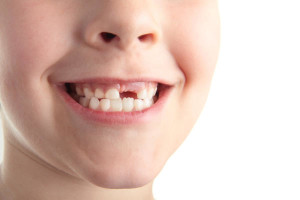There’s nothing more relishing than getting a good sleep. As a matter of fact, sleeping can be an open door to our dreams. Most men and women particularly to those who have frantic schedules love to sleep especially when they have long day at work. Experts said that sleeping is a state of being unconscious. This normal behavior allows the body to relax and regain the strength and energy they used. While you sleep, your body is also in deep slumber. Aside from that, your metabolism slows down whilst your immune system is rejuvenated. Sleeping is also important in terms of giving your body parts and systems to grow and repair.
For this reason, most health physicians suggest that each individual must take a nap for at least 5-10 hours. Most people who lack of sleep normally experience dental health issues. This is due to the associated stress that humans must avoid. Stress is linked to different dental problems and for starters, it is advised to seek professional help about how stress could affect your oral health. Added to this, your dentist will explain how important it is to do your chores at daytime. He will also inform you how lack of sleep impacts your dental health.
On the contrary, lack of sleep leads to complications related to your mouth. Although there are numerous oral cases which link to sleep, here are the top three dental problems which occur mostly to those who’re attached to stress and lack of reliable dental services:
Teeth Grinding or Clenching – Also known as bruxism, experts said that when a person frequently grinds or clenches his teeth, he is swamped with stress. Although teeth grinding is considered by most as a subconscious behavior, other experts still consider it as something more. Recent studies show that bruxism can produce oral cavity which mostly occur when you are in deep slumber. Apart from that, bruxism, if left ignored and disregarded, can result to terrible damages such as jaw problems, headaches, cracked or chipped teeth and of course, the sleep bruxism. Sleep bruxism is a condition where you grind your teeth while asleep. This condition is a very common type of tooth clenching dysfunction.
Just like other dental problems, bruxism may develop to more serious problems like compromising your smile. This can also lead to tooth sensitivity due to the associated chronic facial pain. Bruxism is also discovered to be a good subject in acquiring TMJ dysfunction or also known as Temporomandibular Joint Syndrome. If you must know, TMJ dysfunction is a problem that affects the jaw joints. This can be determined by sensing a pop or click sound in the jaw whenever you open and close them. This oral condition is quite complex considering that it affects not only the jaw joints but as well as the facial muscles, nerves and tissues around it. Most people who have TMJ disorder experience lock jaws which require an immediate dental assistance.
TMJ disorder is fortunately curable. With the help of mouth guards, tooth clenching is minimized. To sufferers who use this kind of appliance typically have a good sleep and an assurance that no negative impact will happen during night time.
Sleep Eating – Who would have thought that the word, “sleep eating” exists considering that both of them are far different from one another? Obviously, sleep eating is a disorder that is barely known by most of us. Sleep eating is a condition that increases the risks of dental problems like gum disease. This is because most individuals with sleep eating disorder have a rare habit of eating. Alternatively, a prescribed drug is taken when you encounter a certain medical condition. These medications are used to treat your condition. Apparently, side effects are inevitable when it comes to these drugs. One of the most popular unwanted effects is the sleep eating disorder known as the NS-RED. This complex condition enables individuals to eat heavy meals and gain no sight of memory at all. Studies show that these types of individuals are prone to different dental problems like periodontal disease, oral cavities and tooth loss.
Sleep eating disorder can be determined if you are gaining weight whilst taking prescribed drugs. The best way to avoid this type of problem is practice the right oral care. Always consider proper brushing, daily flossing and of course, regular dental checkups. If you think that you are still under the spell of ‘eating unconsciously’ then perhaps a glass of fresh water might be nice. This can help eliminate the food debris, acids left in between your teeth.
Xerostomia – Widely known as dry mouth, xerostomia is a condition where you acquire inadequate amount of saliva. Normally, saliva contains 98 percent of water and 2 percent coming from goodies – this includes the mucus, electrolytes, enzymes and antibacterial compounds. A person who produces ample amount of saliva can eliminate food particles behind the teeth, minimizing the likelihood of dental plaque build-up. Unfortunately, producing saliva is sometimes hampered. The strongest reason for this is by taking prescribed drugs. Dry mouth at night is a side effect of prescribed drugs which may lead to different dental problems like tooth decay. Tooth decay happens when particles and plaques are not properly removed. If left untreated, it can result to gum disease – a condition that is quite close to heart disease. Dry mouth at night can be resolved through proper brushing, dental flossing and mouth rinsing. This helps eliminate countless bacteria, plaques and food particles.
Be reminded that maintaining excellent oral health can save your overall health. Remember that both of them are connected. As a result, brush and floss your teeth on a normal basis and speak with your dentist always.

